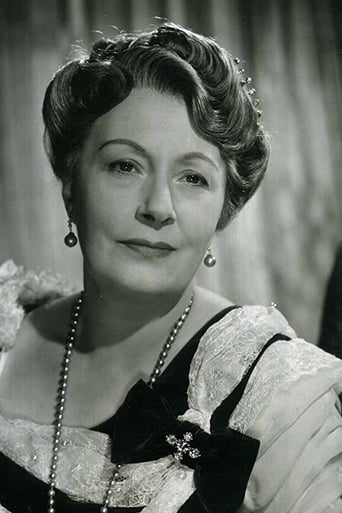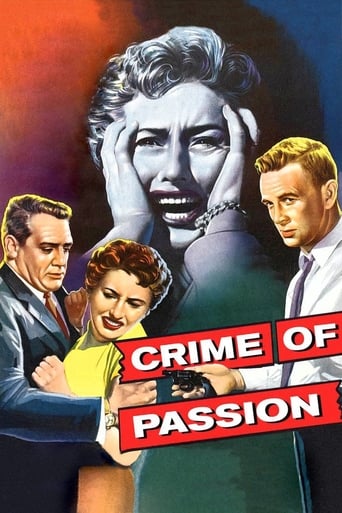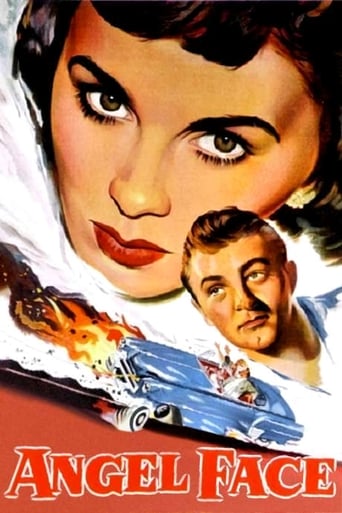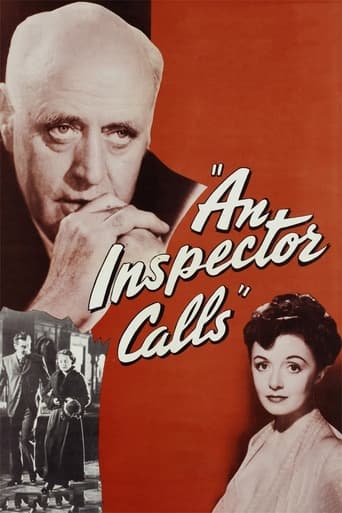
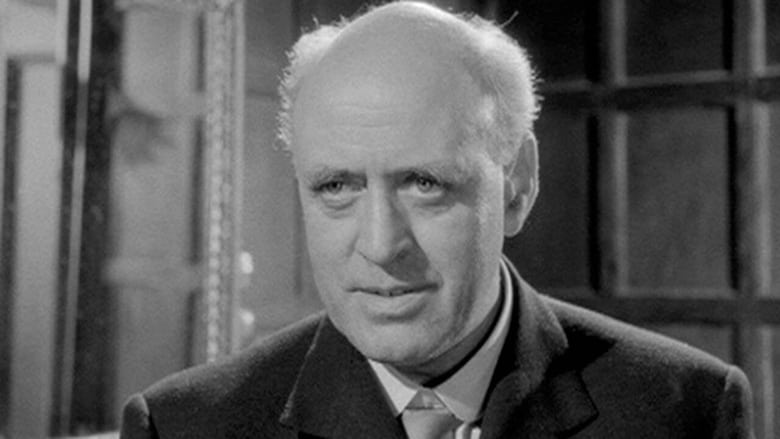
An Inspector Calls (1954)
An upper-crust family dinner is interrupted by a police inspector who brings news that a girl known to everyone present has died in suspicious circumstances. It seems that any or all of them could have had a hand in her death. But who is the mysterious Inspector and what can he want of them?
Watch Trailer
Cast


Similar titles
Reviews
J.B.Priestley's most famous play is an ingenious composition of knots tied up into an overwhelming mess of guilt and human weakness with many hard lessons learned on the way, until it all dissolves into a trifle, but then the real serious business begins, which we may know nothing about but are left to guess wildly at the consequences...The play-acting is fantastic all the way including the minutest details, like for instance the small girl in the fish and chips shop stating her order exactly before wiping her nose. Alastair Sim is always eerily fascinating with his microcosmic acting where the smallest hints import the greatest significance, and Bryan Forbes, quite young here still, excels in a very variegated display of different sides of a spoiled rake, a mother's boy in the worst sense of the word, but comes out of it alive and perhaps better than the others. This is a dream play for any director, who is bound to have a very good time with it including the actors, and the elegance, the comfortable environment with sofas and boudoirs, also including the smoky theatre bar, adds to the charm and entertainment. This is a theatre classic perfectly transformed into cinema with flashbacks and poignant camera and music effects that must charm anyone at any time. It is all set in 1910-12, but it definitely strikes the timeless zone at once and keeps it there, underscored by what we never shall know will happen next...
A upper class family are celebrating round a dinner table one evening when they receive a visit from Inspector Poole (Alastair Sim). The inspector informs the family that a young woman that they all know has died. Due to the fact that everyone in the family knows the victim, the Inspector begins to question each member of the family to try to uncover the truth surrounding her death.An Inspector Calls is a film adaptation of a JB Priestley play and the film does have a very stagy feel about it. However, once Inspector Poole arrives the film never lets up and I was fully wrapped up in the story. Like any mystery film the less you know about it beforehand the better the experience is likely to be for you. The nature of the narrative had me hooked as I was never really sure which direction the film would take me in and how it was going to end - in other words it kept me guessing. The ending is both surprising and thought-provoking.Aside from a good narrative, the film also benefits from excellent performances from the cast with Sim arguably being the strongest player. The way he interrogates the family and gets information out of them is also top-notch and very clever.This is a great film and uses a very simple premise and uses it well and to good effect. The running time of 80 minutes keeps everything tight and ensures that this film never outstays his welcome.
J. B. Priestley was a prolific writer of relatively old-fashioned plays, poems, essays, and all the rest of it. One of his major concerns was time. He didn't quite believe in it, not the way the rest of us do.It shows in this play. Alistair Sim enters one of England's stately homes and interrupts an elaborate 1912 dinner, at which everything has gone smoothly. The lord of the manor may be honored with a knighthood and is anxious to avoid any sort of scandal. He's affable but pompous.This family consists of his stand-offish, snobby wife; his beautiful and sensitive daughter; her fiancé, who is a minor industrialist; and the son who seems moody, put out, and has drunk a little too much at dinner.Sim has some questions he wants to ask of the family. His inquiries are polite but not very tactful. A young lady has just died in Brumley. She's taken insect poison or something, a not very pleasant way to check out, and whether or not it was suicide and whether anyone in the family knows anything about the young woman or her motives is the subject of Sims' investigation.Everyone in the family protests. It's a human tragedy, of course, but what have they to do with it? Sims' adroit questioning draws out the fact that everyone in the family has had unwitting contact with the pretty girl, each without knowing of the others' participation in her downfall.The blustering father fired her because she was a troublemaker. She asked for a raise at his factory. (Priestley had socialist leanings.) The daughter insulted her in a fit of pique over an expensive hat. The fiancé had had an affair with her for several months. The stuffy mother had denied her aid when the girl was pregnant and needed charity. The haunted, drunken son turns out to have been the father. So they all contributed to the "human tragedy" in one way or another, important or not.Pacing around on the sidewalk, the fiancé runs into a cop who tells him that there is no inspector with the name that Sims is using. Sims is a fake. The fiancé rushes back to the house and informs the others. The unperturbed Sims is asked to wait in the study, which has no other doors and no open window.The family decides to confront Sims but when they open the study door, he's disappeared. And at this point, the father receives a call that a young woman has just died on the way to hospital, after having taken poison. An inspector is now on the way to question the family.The film doesn't exactly grip the viewer. There is a good deal of drama and guilt in the dining room and flashbacks are used to illustrate the encounters of each family member with the victim. The ending is left up in the air. With Sims in the persona of the inspector, everyone acts guilt ridden, but the moment his identity is questioned some of them revert to type.The semi-supernatural conscience figure (or superego, if you want) wasn't exactly new at the time. Poe's story, "William Wilson," gives us a similar character who may or may not exist. Yet the performances are quite good, some of them, especially Sims with his manufactured smile and his violation of the rules governing politesse. Every time they try to get rid of him, before another embarrassing revelation takes place, he's not quite done. The story itself, of course, is as improbable as all get out -- one working-class babe being driven lower and lower on the social ladder by five members of one family -- independently -- in a city of more than three million? But that's not the point, of course. The point is that no man is an island and that when we cause suffering in someone else, we lose a little bit of ourselves. It's a fundamentally Christian point of view, at least in Edwardian England. I'm not certain how well it fits into our current Zeitgeist, which seems sometimes to owe more to Nietzsche than the New Testament.
JB Priestley usually had a moralising theme to his plays.As a Socialist he wanted to show his audience the social ills in society and prick their conscience.This film, which my son studied for his English GCSE was made into a film in 1954 with Alistair Sim in the title role.To help my son get a better understanding we all went up to the West End to see the play acted by professionals.It has a haunting theme about the social ills in the Edwardian society of 1912 when a girl first loses her job at the factory when asking for higher wages by the father, loses her second job courtesy of the daughter, loses her flat courtesy of the daughter's fiancé, is made pregnant by the son and finally is refused genuine charity by the mother.My son returned the favour by giving me a DVD version of the film when I expressed a wish to see it, since one sees so few worthy films on TV these days compared to all the modern rubbish shown.There is rather a ghostly denouement to the film and twist which Priestley cleverly writes into the plot.Although Alistair Sim is only on screen for a short time he effortlessly steals your attention.



